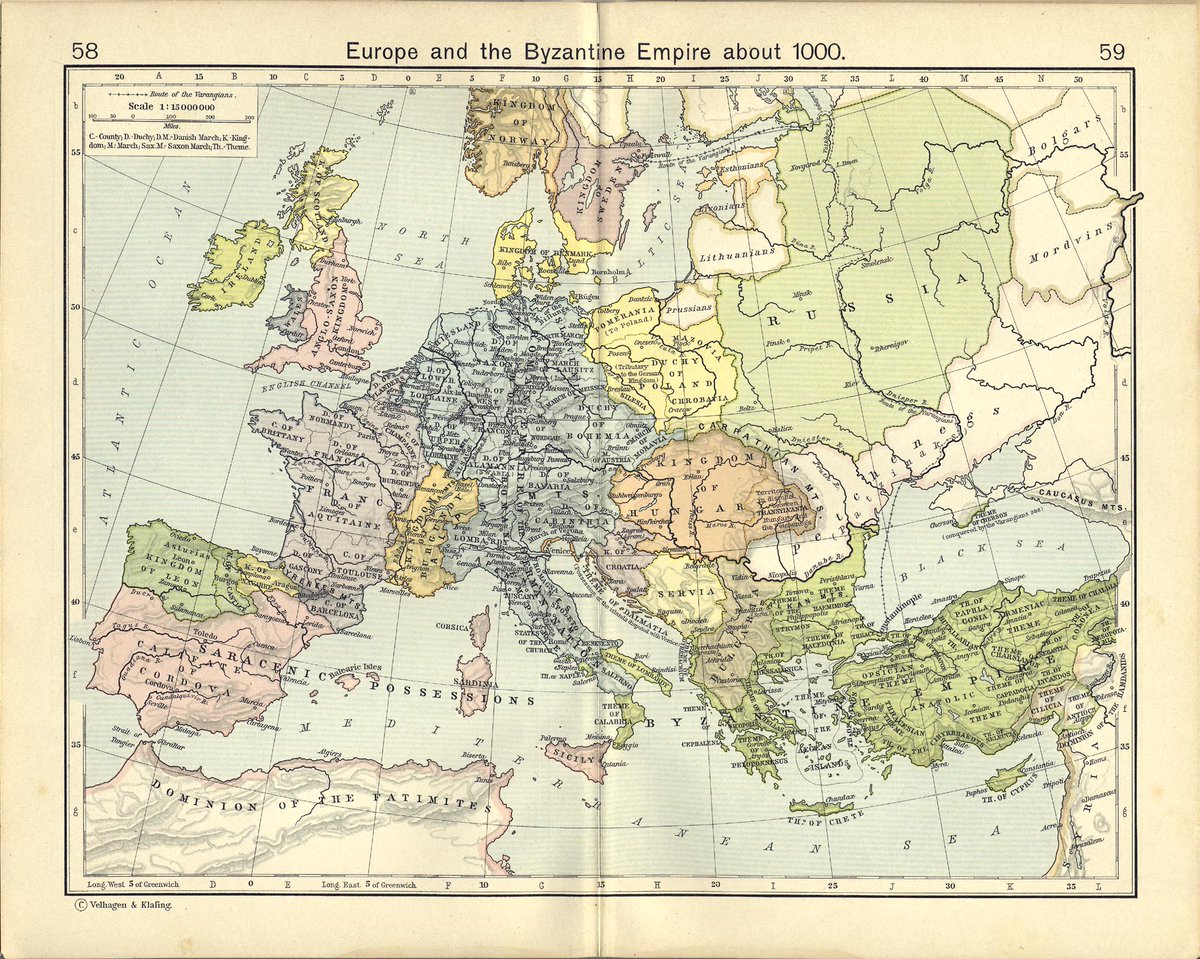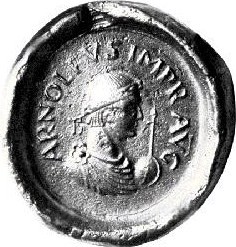
An imperial dynasty disappears into the ashes, but a new one awakens.
A reckoning awaits, against a devastating foe.
Renewed shall be the Empire that was broken
The crown of iron shall again have a bearer.
Story in the evening ...
A reckoning awaits, against a devastating foe.
Renewed shall be the Empire that was broken
The crown of iron shall again have a bearer.
Story in the evening ...
https://twitter.com/Arby_K/status/1442677974117933060
Otto was born in 912 to Heinrich and Mathilde.
In 911, King Ludwig of East Francia had died bringing to end the Carolingian line of East Francia. Otto's grandfather was among the contenders for the throne, but his age had caught up with him and a rival was elected. 1/10
In 911, King Ludwig of East Francia had died bringing to end the Carolingian line of East Francia. Otto's grandfather was among the contenders for the throne, but his age had caught up with him and a rival was elected. 1/10

Soon after his birth, Otto's grandfather died. His father, Heinrich, became the Duke of Saxony and when King of East Francia died in 919, Heinrich was elected as the new King. But Heinrich had his work cut out for him. Many Dukes rebelled and the Magyars were on the attack. 2/10 

The Magyars had had a devastating impact on East Francia in early 10th century. After the conquest of the Carpathian Basin, they held successful raids across Europe with the Basin as their base. But in 924, Heinrich managed to buy them off, in exchange for tribute. 3/10 



Heinrich also gave reasonable autonomy to the major regions of East Francia, but he had to take down Bavaria. In 925, he conquered Lotharingia, which had aligned with West Francia in 911. Otto would have been involved in some of Heinrich's later campaigns. 4/10 

Unlike his predecessors, Heinrich nominated his son, Otto, as his heir. Otto was elected King in 936, but he faced trouble from the Dukes of Franconia and Bavaria as well as from his own brothers, Thankmar and Heinrich. But by 941, he had control over East Francia. 5/10 

He strengthened his hold on his nation by appointing relatives in key positions, including his former rebellious brother, Heinrich, as Duke of Bavaria. He also entrusted power with the clergy in ruling parts of the Kingdom. But he still had to deal with foreign invaders. 6/10 

He was able to pacify the Slavs and the Danes, and bring back Bohemia as a vassal by 950. But the Magyars were still around. In 955, they invaded Bohemia. But Otto, with Bohemia, Lorraine and Swabia demolished the Magyar army bringing to end their raids into East Francia. 7/10 

In 950, Berengar of Ivrea seized power in Italy and imprisoned the ex-King's wife, the Burgundian Princess Adelais. Otto, who also had interests in Burgundy, came to the rescue, married Adelais, and was crowned with the Iron Crown of the Lombards, as King of Italy. 8/10 

But the next year he had to return to Saxony, when his son, Liudolf, rebelled. As he returned, he made peace with Berengar who returned to rule in Italy. King Otto would overcome his son and the Prince would later die in 957 in Italy, perhaps send to take care of Berengar. 9/10 

King Otto returned to Italy in 962, when Pope found himself up against Berengar. For his support, Pope crowned Otto Emperor, a title that was last held by Berengar's grandfather, who had died in 924. The reborn Holy Roman Empire would retain a presence in Italy till 1250s. 10/10 

• • •
Missing some Tweet in this thread? You can try to
force a refresh















